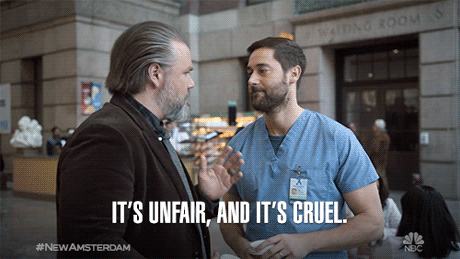I am not vegan.
But I’ve been actively exploring alternatives to dairy products.
I have managed to replace cow milk with oat and almond milk and I believe I won’t buy dairy cheese after I finish the last few slices left at home.
Curd is something that is hard for me to give up. If you know of a good alternative, I’m all ears.
This edition is not an attempt to turn you into vegan (or vegetarian). I believe that’s a personal choice and only you can convince yourself to make that switch.
But it’s always good to know how certain things have evolved and if we should make the necessary changes in our lives too.

Around 10,000 years ago, we discovered that we could harvest the milk of other species. We realized that they are a convenient, nutrient-rich food source.
Fast forward to the 20th century, pasteurization, refrigeration, and manufacturing of powdered milk led to milk products becoming a household staple.
6 billion people worldwide consume dairy products in the form of milk, cheese, ice creams, butter, yogurt.
But we’re paying a price for that.
A 2020 report states that the largest 13 dairy companies in the world are now responsible for the same level of combined greenhouse gas emissions as the entirety of the UK.
Ruminant animals (cows, water buffaloes, sheep, goats and camels) digestive system is also a major producer of methane(a GHG 84 times more potent than CO2).
More on that and three startups across the world that are building dairy alternatives in this edition of 🤷🏽♂️ Not My Problem ⬇️
Our milk today comes from megadairies…Cows are artificially inseminated at the age of 13 months so that they can start producing milk. 9 months later, when the calf is born, it is separated from the cow and sold for meat. The cow is impregnated again 3 months later and the process continues till the age of 4 when it is killed for beef. It is common to use antibiotics or hormones to cause cows to produce additional quantities of milk.
Milk proteins without the cows…Dairy proteins casein and whey make the dairy products creamy, melty and silky. California-based Perfect Day has applied gene sequencing and 3D printing to make casein and whey without the cows. All proteins in nature are encoded by sequences of DNA called genes. Organisms across the world speak the DNA language. So to produce casein and whey without the cow, Perfect Day introduced these animal genes to another species.
The cow genes responsible for producing cow milk proteins are available in free scientific databases. Think of them as blueprints.
These blueprints are fed to a fungus - which reads it and produces the same output as cows- milk proteins casein and whey.
The process is similar to fermentation but instead of yeast, the team uses a gene-altered fungus they call Buttercup.

Better for humans and the planet…Perfect Day’s products are free from the hormones, antibiotics, steroids, and cholesterol found in many dairy products. They have 84% fewer GHG emissions compared to traditional milk, use 98% less water than regular dairy, use 91% less land than needed for dairy and 65% less energy compared to farmed dairy. To have a large-scale impact, instead of making their own products, they have partnered up with existing dairy companies.
This is accelerating climate change…Apart from ill-treating the animals, the dairy industry puts a lot of pressure on the planet’s resources. Estimates say that 1,020 litres of water are required to produce just 1 litre of milk. Approximately 14.5-18% of greenhouse gas emissions are caused by animal agriculture. With growing populations, rising incomes and urbanization, the demand for dairy products continues to rise, putting additional pressure on the planet.
Making pea delicious…Three young men wanted healthy and tasty alternatives to dairy products on the market. They set out to discover how they could make pea(the gold standard for vegan athletes) delicious. Their quest led to the foundation of Vly- a plant-based milk alternative that combines important nutrients, sustainability and taste. They procure yellow split peas from France for their plant-based drink.
To make pea milk, dried peas are soaked, mashed and centrifuged. The legumes are then divided into protein, starch and fibre.
They use the isolated pea protein for the pea drink; the other components are resold.
The pea drinks contain between 2.5 and 6.2 percent protein and have a protein content similar to that of cow's milk.

A more climate-friendly method…the production of pea milk requires 10 times less water than what is required for producing cow’s milk; the land use is a fifth compared to cow milk. The founders wanted a lot of protein, few carbohydrates and creamy consistency for their products but without the taste of peas. After multiple iterations, they managed to do it successfully.
Concerning stats…By 2026, India could be the world’s largest producer of dairy milk. India’s livestock population is considered to be the world’s largest and a study has predicted that the methane produced by this livestock could significantly impact climate change. Milk, apart from being perceived as healthy and nutritious, also holds a cultural significance for many in the country. In a country where 163 million people lack access to safe water, a large amount of water is used to raise this livestock.
Humble beginnings…At the age of 16, animal activist Abhay Rangan realized that there were very few vegan brands that were affordable as a student. So along with his mother, he started manufacturing plant-based milk in their home kitchen. He then used to travel 500km every week throughout Bengaluru to deliver that. That was the humble and scrappy beginning of Goodmylk, which wants to make vegan products affordable and accessible to everyone.
The brand manufactures a line of dairy-free products, which include cashew-oat mylk, peanut curd, plant-based butter and vegan mayonnaise.
They source their peanuts, cashews and other ingredients locally, bringing down their carbon footprint.
Less than 30% of their customers are vegan- the majority of them are either lactose-intolerant or recognize the health benefits of plant-based foods.

Goodmylk’s products are shelf-stable…which eliminates the need for refrigeration in any part of their supply chain. This has enabled them to offer a monthly subscription box with low shipping costs. As they can afford to send their products through slower means of transport and without refrigerated containers, it brings down the shipping cost and the impact on the planet.
🔍Want to test your knowledge of dairy products?
Try solving the crossword below
📰Climate change stories of the week
Tesla stops accepting Bitcoin- citing environmental damage caused by it as the reason.
For a brief time, California generated 95% of its electricity from renewable resources.
Should people have a right to repair their devices?
If you liked it, please share this edition with your network by clicking the button below. That would mean a lot.
📢 Shoutout to Paridhi who helped me write this edition.
Hit that 💚 if you liked today’s edition.
📧 Got some feedback to share or want to say hello? Just reply to this email or leave a comment.
Thanks and see you next week😄











